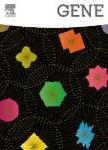版权所有:内蒙古大学图书馆 技术提供:维普资讯• 智图
内蒙古自治区呼和浩特市赛罕区大学西街235号 邮编: 010021

作者机构:Ningbo Urol & Nephrol Hosp Dept Urol Ningbo 315192 Zhejiang Peoples R China Ningbo Urol & Nephrol Hosp Dept Ultrasonog Ningbo 315192 Zhejiang Peoples R China Ningbo Inst Med Sci Ningbo 315020 Zhejiang Peoples R China
出 版 物:《GENE》 (基因)
年 卷 期:2019年第690卷
页 面:120-128页
核心收录:
学科分类:0710[理学-生物学] 07[理学] 09[农学]
基 金:Natural Science Foundation of Zhejiang Province [LQ18H050004]
主 题:Long non-coding RNA Prostate cancer Proliferation Apoptosis SAP30L
摘 要:Accumulating evidences have demonstrated the importance of long non-coding RNAs (lncRNAs) in initiation and progression of various cancers, including prostate cancer. LncRNA SAP30L-AS1 is previously identified in the plasma of prostate cancer patients. In this study, we further investigated the expression of SAP30L-AS1 in prostate cancer tissues and cell lines. Moreover, we explored the biological roles and mechanisms of action of SAP30L-AS1 in prostate cancer. The expression of SAP30L-AS1 is found to be increased in prostate cancer tissues and cell lines compared with adjacent noncancerous tissues and normal prostate epithelial cell line, respectively. Increased expression of SAP30L-AS1 is associated with greater Gleason score, advanced pathological T stage, and poor over survival of prostate cancer patients. Functional assays demonstrated that ectopic expression of SAP30L-AS1 promotes prostate cancer proliferation and inhibits prostate cancer apoptosis. SAP30L-AS1 knockdown represses prostate cancer proliferation and induces prostate cancer apoptosis. Furthermore, SAP30L-AS1 knockdown represses prostate cancer xenograft growth in vivo. Mechanistic investigation revealed that SAP30L-AS1 physically binds to the promoter of SAP30L and represses SAP30L expression. The expression of SAP30L is negatively associated with that of SAP30L-AS1 in prostate cancer tissues. Rescue assays demonstrated that overexpression of SAP30L attenuated the roles of SAP30L-AS1 in promoting prostate cancer proliferation and inhibiting prostate cancer apoptosis. In conclusion, SAP30L-AS1 is upregulated and has oncogenic roles in prostate cancer via repressing SAP30L. Our data suggest that SAP30L-AS1 may be a promising prognostic biomarker and therapeutic target for prostate cancer.